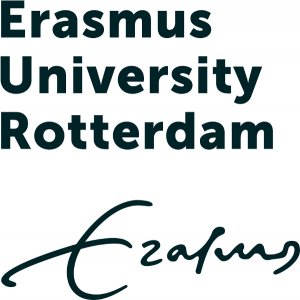Erasmus Universiteit Rotterdam

Erasmus University Rotterdam is a highly ranked, international research university, based in the dynamic and diverse city of Rotterdam. Founded in 1913, it is currently one the biggest universities of the Netherlands with a student population of 23,000 and a research community of circa 1,400. Scholars and students in seven faculties and two institutions work on global social challenges in the areas of health, wealth, governance and culture. As part of a large global network of academic partnerships, a unique collaboration with city and port, the dynamic city of Rotterdam serves as our laboratory. The quality of research at Erasmus University is reflected in its consistent top-100 position in most major universities rankings. On the lively, modern campus, students and scholars of more than 100 nationalities are constantly encouraged to develop their talents and meet their ambition. Erasmus School of Health Policy & Management (ESHPM) based at Erasmus University Rotterdam is leading in the fields of policy and organisational sciences with a focus on health care, health economics, medical technology assessment, social medical sciences, health law and health insurance. ESHPM educates students for several jobs in health care varying from management functions in health care organisations to health insurance, consultancy and governmental jobs related to health care. The institute offers an initial bachelor programme, two master programmes and post academic education. The programme on economic evaluations of health care at ESHPM has achieved a leading European position. ESHPM is involved in ten EU-projects in the Horizon 2020 - research and innovation framework programme and was beneficiary in nine studies for the 7th research framework programme. Herewith, ESHPM has the largest number of EU-Projects at the Erasmus University Rotterdam.
Main tasks in the project
ESHPM will contribute their extensive knowledge about and experience in costing and outcomes research. Furthermore, ESHPM is work package leader on the development of internationally standard methods and tool to identify, include identify, measure and value, productivity losses as well as the development of a pan European and supra national value set for the EQ-5D.
Expertise of staff members involved
 Dr Leona Hakkaart-van Roijen (Principal Investigator)
Dr Leona Hakkaart-van Roijen (Principal Investigator)Dr Leona Hakkaart-van Roijen, Associate Professor Health Economic and Economic Evaluations in Health Care. Dr Hakkaart main field of interest is cost-effectiveness, costing methodology and outcome measurement, especially in mental health. She developed several questionnaires to measure cost from a societal perspective (iMCQ, iPCQ and TiC-P). Dr. Hakkaart is the author of the update of the Dutch manual for costing studies in economic evaluations in the new Dutch guidance for economic evaluations in healthcare of the National Health Institute (ZiN).
The PECUNIA project aims to establish standardised costing and outcome assessment measures for optimised national healthcare provision in the European Union (EU). The research endeavour is based on a unique multi-national, multi-sectoral and multi-person approach. In the frame of this ambitious project, the research team of the Erasmus University Rotterdam will contribute by sharing and expanding their extensive experience and knowledge on costing and outcome measures from a societal perspective. PECUNIA will add to increase comparability and applicability of health technology assessment in the EU to inform policy decision making.
 Kimberley Hubens
Kimberley HubensKimberley Hubens MSc., PhD student at the section Health Technology Assessment of the Erasmus School of Health Policy and Management (ESHPM) since 2017. She studied health sciences with a specialisation in health economics at the Erasmus University and NIHES where she finished her MSc in 2016. Her research focus will be on the valuation and measuring of productivity loss of paid and unpaid work.
 Dr Ayesha Sajjad
Dr Ayesha SajjadDr Ayesha Sajjad, post-graduate at ESHPM. Dr. Sajjad core activities include conducting statistical analyses, writing research scientific papers, providing epidemiological and statistical support and supervision of PhD students. In the Pecunia-project she will focuss on the development of methods and estimates for applied cross-national utility value sets allowing for increased comparability and transferability of outcomes in economic evaluations using the EQ-5D.